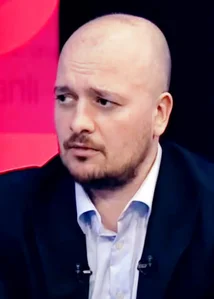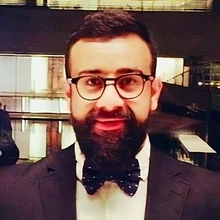Publications
Azerbaijan Attempts Pragmatic Diplomacy at SCO Summit
 By Fuad SHAHBAZOV, Baku-based independent regional security and defence analyst
By Fuad SHAHBAZOV, Baku-based independent regional security and defence analyst
On August 30, Azerbaijani President Ilham Aliyev arrived in the People’s Republic of China (PRC) to attend the 25th Meeting of the Council of Heads of State of the Shanghai Cooperation Organization (SCO) in Tianjin. Azerbaijan holds the status of a “dialogue partner” of the SCO but is not a full member. Aliyev’s attendance at the PRC-led SCO summit came amid simmering tensions between Azerbaijan and Russia, followed by mutual accusations and bellicose rhetoric of the Russian conservative establishment against Azerbaijan. In the face of Moscow’s open accusations and attempts to pressure Azerbaijan through frequent police raids against the local Azerbaijani diaspora, Baku is actively building alternative partnership formats in the Caucasus, Central Asia, and beyond. Since the beginning of 2025, Azerbaijan has significantly boosted its partnerships outside the Caucasus and Russia. The recent breakthrough in Azerbaijan’s diplomacy paved the way for establishing a strategic partnership with the PRC, which was cemented in an April agreement. READ MORE
Publications
Peace in South Caucasus Closer After the Washington Summit, but Uncertainties Loom
 By Vasif HUSEYNOV, PhD, Head of Department, AIR Center, Adjunct Lecturer, ADA and Khazar Universities, Baku
By Vasif HUSEYNOV, PhD, Head of Department, AIR Center, Adjunct Lecturer, ADA and Khazar Universities, Baku
On August 28, Armenian Prime Minister Nikol Pashinyan announced that his country will start substantive talks next month with the United States and Azerbaijan on the practical arrangements for opening a transit route to Azerbaijan’s Nakhichevan exclave via the territory of Armenia. The agreement on this route (hereafter the Zangezur Corridor) was reached on August 8 during a trilateral meeting between Azerbaijani President Ilham Aliyev and Prime Minister Pashinyan, mediated by U.S. President Donald Trump. According to the trilateral agreement, the route (renamed as the Trump Route for International Peace and Prosperity, or TRIPP) would serve as an “unimpeded” passage and be managed through what Trump called an “exclusive partnership” between Armenia and the United States for 99 years. According to Pashinyan, this implies the deployment of an “Armenia-United States company” which “will carry out the business management”. He underscored that the company “will not control that road but manage it,” refuting the domestic criticism about the loss of Armenian sovereignty over the route and the sublease of the territory to the United States. READ MORE
Publications
India’s China Embrace and US Decoupling  By Shanthie Mariet D’SOUZA, PhD, founder & president, Mantraya Institute for Strategic Studies (MISS)
By Shanthie Mariet D’SOUZA, PhD, founder & president, Mantraya Institute for Strategic Studies (MISS)
Over the past few months, a process of normalization in the China-India bilateral has taken off.
Relations between nations can be fragile. Contingent upon internal and external factors – interests and compulsions – sour relations can turn into mutually beneficial partnerships. At the same time, harmonious relations that held out promises for the future can go awry. India is undergoing such a phase of transformation and rebalancing. Donald Trump’s United States, with the imposition of 50 percent tariffs, appears to have scaled down its interest in India as a checkmate to China’s assertive foreign policy in the Indo-Pacific, endangering the Quad. China, also bruised by Trump’s tariff policy, is sensing an opportunity to not just mend ties with India, but also try creating a Beijing-Moscow-New Delhi alliance. In light of these shifts, New Delhi’s much-avowed policy of strategic autonomy is undergoing a reorientation of sorts – swinging from a tilt toward the U.S. to one that is veering toward Beijing, albeit with a continued hope that Washington may realize its mistake and change tracks. READ MORE
Publications
The Washington Summit and Its Implications for South Caucasus Geopolitics  By Sultan ZAHIDOV, Leading Advisor at the AIR Center, Baku and Senior Lecturer at the Baku State University
By Sultan ZAHIDOV, Leading Advisor at the AIR Center, Baku and Senior Lecturer at the Baku State University
For decades, establishing lasting peace in the South Caucasus has been one of the most persistent challenges for regional states and international actors alike. Straddling vital geostrategic lines of Eurasia, this region has long been a geopolitical “shatter belt” — a zone where the interests of great and regional powers collide. External actors have repeatedly sought to exploit these divisions, employing “divide et impera” strategies that, rather than resolving disputes, have often exacerbated tensions. Not without reason, renowned scholar Thomas de Waal describes the South Caucasus as “the lands in between,” emphasizing its role as a crossroads of competing powers. According to Barry Buzan’s ‘overlay’ concept, the weakening and decline of great powers paves the way for the resurgence of past conflicts that had previously been de-escalated under the authority of the dominant power. Indeed, the collapse of the Soviet Union reopened the Pandora’s box of frozen conflicts, none more consequential than the Armenia–Azerbaijan conflict. READ MORE
Publications
Turkish Policy in the South Caucasus and Relations with Russia  By Benyamin POGHOSYAN, PhD, Senior Research Fellow at the APRI Armenia
By Benyamin POGHOSYAN, PhD, Senior Research Fellow at the APRI Armenia
Turkey-Russia relations are typically based on compartmentalization. They simultaneously compete and cooperate in various regions, separating the areas in which their interests are overlapping from those where they are in competition. This concept was the base of their competing relations in Syria until the demise of Assad regime in 2024, and mutual interactions in post-Gaddafi Libya. Another aspect of compartmentalization is the conscious separation of economy and geopolitics: they have been developing economic cooperation while competing in geopolitics. Economic cooperation is significant for both Russia and Turkey, considering Russian gas and oil imported by Turkey and the construction by the Russian state nuclear energy company ROSATOM of a nuclear power plant in Akkuyu, southern Turkey. READ MORE
Publications
The 2025 Trump–Putin Summit in Alaska: Geopolitical Implications Amid the Ukraine War
 By Yunis GURBANOV, PhD, Senior Advisor at the AIR Center, Baku
By Yunis GURBANOV, PhD, Senior Advisor at the AIR Center, Baku
The Alaska summit highlighted the discordant divergence between Washington and Moscow after Russia's invasion of Ukraine, and exposed the limits of summit diplomacy in the context of a grinding war. President Trump reaffirmed America's formal commitment to Ukraine's sovereignty and NATO's deterrent stance, but his words were typically qualified by continual calls for a "realistic settlement" with Moscow. This contrasted sharply with the State Department’s prior line, suggesting internal tensions within Washington’s approach. President Putin, for his part, sought to capitalize on these uncertainties: he promoted Russia's military successes as irreversible facts on the ground, demanded Western recognition of occupied land, and framed Moscow's actions as a defensive reaction against NATO "encirclement. READ MORE